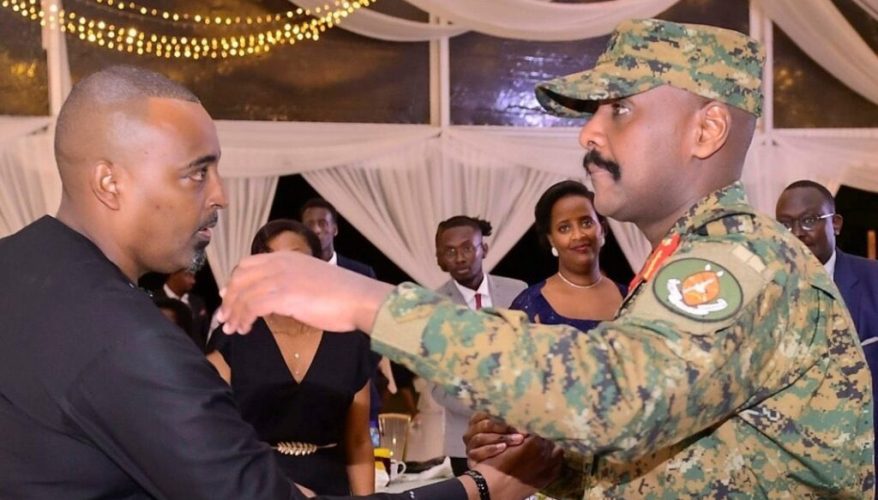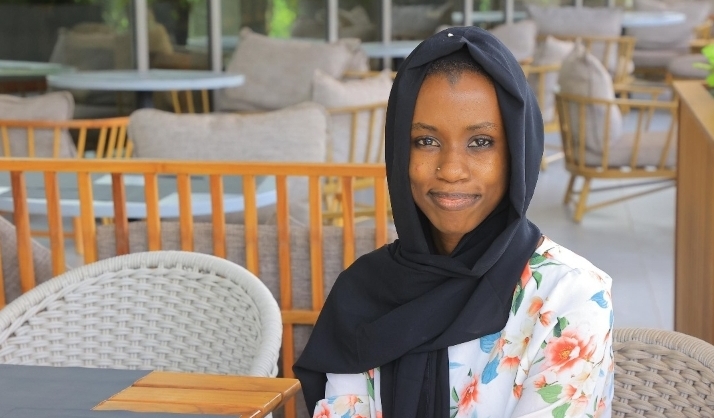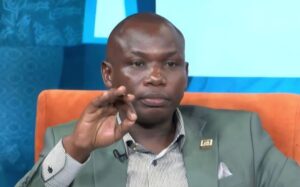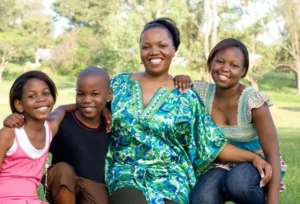News
Uganda’s Political Divide and the Death of Compassion

In Uganda today, it is no longer guaranteed that grief will be met with empathy. Increasingly, when a prominent figure (ruling government) or their relative passes away, the public reaction is not one of mourning, but of mockery, sarcasm, and scorn, often sharpened by political affiliation.
Death, which once united communities in quiet reflection and solidarity, now exposes the raw fractures of a deeply divided nation. In recent weeks, this troubling pattern has once again come to the fore. First, the son of a well-known Ugandan businessman died in a tragic road accident.
Before his family could even process the loss, public commentary turned savage, with many questioning his legacy and celebrating his demise. Shortly thereafter came news of the passing of Cedric Babu, son of former EALA member Captain Francis Babu.
What began as a plea for financial support for a heart transplant in the United Kingdom ended in death, and yet again, ridicule swiftly replaced sympathy. Some on social media openly celebrated the loss. Others weaponized it to criticize his family’s ties to the NRM. Across platforms, many felt no need to pause or reflect; there was only reaction, politicized and brutal.What has become of us as a nation when human loss is no longer sacred? When grief is reserved only for those who are politically convenient? This shift did not happen overnight.
Uganda’s political landscape, marred by decades of state excesses, corruption, economic disparities, and unresolved grievances, has fuelled deep public cynicism. The ruling class is often perceived as having lived above the law, enriching themselves while ordinary citizens struggle daily. It is from this well of frustration that many now draw their bitterness. When the elite suffer, the masses are not moved; some even see it as poetic justice. Yet we must ask ourselves: how far should that bitterness go? Does justice lie in mocking a family at the hour of their greatest pain? Is vengeance by public laughter a substitute for institutional accountability? President Museveni and the First Lady recently issued a public apology, an unusual gesture in Uganda’s political theatre. They asked forgiveness from Ugandan,s especially from the people of Buganda, acknowledging past failures.
It was an act that could have opened the door to national dialogue. But the response, particularly online, was marked by scepticism, even hostility. Many refused to accept the apology, arguing that it was too late. This widespread unwillingness to forgive is not just a rejection of the message, it’s a signal that the wounds of this country run far deeper than words can reach.The holy texts that many Ugandans turn to whether the Bible or the Qur’an offer a consistent message: forgiveness is not just a virtue; it is a necessity for healing. “Blessed are the merciful, for they shall obtain mercy” (Matthew 5:7), and “The servants of the Most Merciful are those who walk upon the earth humbly… and when the ignorant address them harshly, they say words of peace” (Qur’an 25:63).
But today, even these teachings seem distant. Anger has become normalized. Our screens are filled with conflict, our tongues sharpened by despair. Social media has accelerated the decline of empathy. Pseudonymous accounts now drive public discourse. The so-called “digital in-laws” a term coined to describe online critics who act as moral police and courtroom jury simultaneously, have hijacked national mourning. They filter grief through political narratives, ridiculing those they see as oppressors or beneficiaries of the system. Grief is no longer personal. It is public, politicized, and judged .When former South African president F.W. de Klerk died, the reaction was divided but within the discourse, space existed for complexity.
Many criticized his past role in apartheid, but few ridiculed his death. South Africa chose to remember history while still upholding the dignity of death. Uganda could learn from that. Grievance and grace do not have to be mutually exclusive.What this nation needs now is not performative reconciliation or selective compassion. We need a deliberate dehumanization of one another. The healing of Uganda will not come from political speeches, nor from apologies broadcast on national television. It will begin when ordinary citizens reclaim empathy.
When we remember that behind every name trending online is a mother, a widow, a friend burying someone they loved. Forgiveness is not weakness. It is the strength to choose humanity over vengeance. And to forgive does not mean to forget wrongdoing; it means refusing to perpetuate cycles of cruelty that devalue life. Uganda’s future depends not just on political reform, but on moral repair. We must ask: what kind of country are we building, if we cannot even console the bereaved without asking who they voted for? It is time to put down our digital weapons and remember what binds us not as supporters of this or that party, but as people, citizens, neighbours, and fellow mourners on this brief journey through life. Let death remind us of what politics has made us forget: that every life has value, and that the ability to grieve together, even for our adversaries, is the first step in rebuilding a truly compassionate nation.
News
Conversation With Uganda’s Student Tech Pioneer: Kusiima Saruah

In a country where the youth make up the majority of the population, their voices are often overlooked in critical governance processes. But a bold new wave of innovation led by young minds is reshaping how civic participation and leadership are cultivated, starting right at the grassroots.
One such trailblazer is Kusiima Saruah Kyaligonza, a 21-year-old software developer and university student at Uganda Martyrs University, whose work caught our attention. In a recent conversation with Amiri Wabusimba, Kusiima shared her vision, journey, and the powerful potential of digital platforms to transform Uganda’s democratic future.
Inspired by the challenges she observed in university elections, including voter mistrust, low student participation, and systemic apathy, Kusiima developed a digital voting platform tailored for student elections. She aimed to rebuild faith in electoral processes, beginning within schools. “Watching the university’s elections, I saw the frustration from students.
I wanted to create a space where students feel their voices matter and their votes count,” she explained. “If we instill that mindset early, we raise a generation that demands integrity and leads with purpose.” Her platform addresses specific electoral issues such as vote rigging, low turnout, and favoritism common even in student leadership contests by promoting transparency, fairness, and accessibility.
Kusiima’s work is part of a broader movement of youth-led innovation in Uganda. “We often say the youth are the leaders of tomorrow,” she noted, “but many of us are already leading today through art, technology, advocacy, and innovation. What we need is support, not just applause.” Her initiative has been well received by fellow students, who report feeling empowered, heard, and more engaged in school governance. According to Kusiima, the impact goes beyond elections; it sows seeds of responsible leadership.
Asked whether digital voting could work on a national level, Kusiima responded with conviction. “Yes, it can if we commit to building digital literacy, infrastructure, and, most importantly, trust. Leaders must stop fearing technology and start embracing its potential.” If given a chance to address the Electoral Commission or national leaders, Kusiima says she would urge them to invest in youth innovations and adopt transparent systems that simplify civic participation without compromising credibility.
As Uganda continues to grapple with questions around electoral transparency, declining public trust in democratic institutions, and low youth participation, innovations like Kusiima Saruah’s digital voting platform couldn’t have come at a better time, especially as the country prepares for the 2026 general elections. Her initiative offers more than a technological upgrade, it’s a catalyst for cultural change in how Uganda engages its citizens from an early age. By digitizing trust, simplifying participation, and empowering youth to lead, this platform embodies the future of accountable governance.
This is not just a student project; it’s a national opportunity waiting to be embraced. It is time for Uganda’s government, Electoral Commission, civil society, and development partners to see this for what it is: a smart, scalable, homegrown solution that reflects both the challenges and the aspirations of a new generation.
If Uganda truly seeks to uphold the principles of free and fair elections in 2026 and beyond, then supporting innovations like Kusiima’s is not optional; it is essential.
-
Top Stories2 days ago
Just in: PLU leaning to NRM, Withdraws From Party Primaries With 22 days Remaining to Elections.
-
Top Stories5 days ago
Suspected female suicide bomber killed in Kalerwe
-
Top Stories5 days ago
NUP Clears Kyeyune Pafuladiito For Mubende District Chairperson Race.
-
Top Stories5 days ago
NUP Goes For Buwekula South MP Seat Blesses Edward Ssempira.
-
Top Stories2 days ago
Museveni Approves Flyover Along Kampala-Jinja Highway to Protect Mbalala Industrial Park Workers
-
Top Stories4 days ago
Uganda’s Open Currency Policy and the Decline of the Shilling
-
Top Stories4 days ago
Dr. Ssemugenyi petitions Constitutional Court over UPDF Amendment Act
-
Top Stories2 days ago
Police fire teargas and water cannon at protesters in Kenya as thousands take to the streets

















